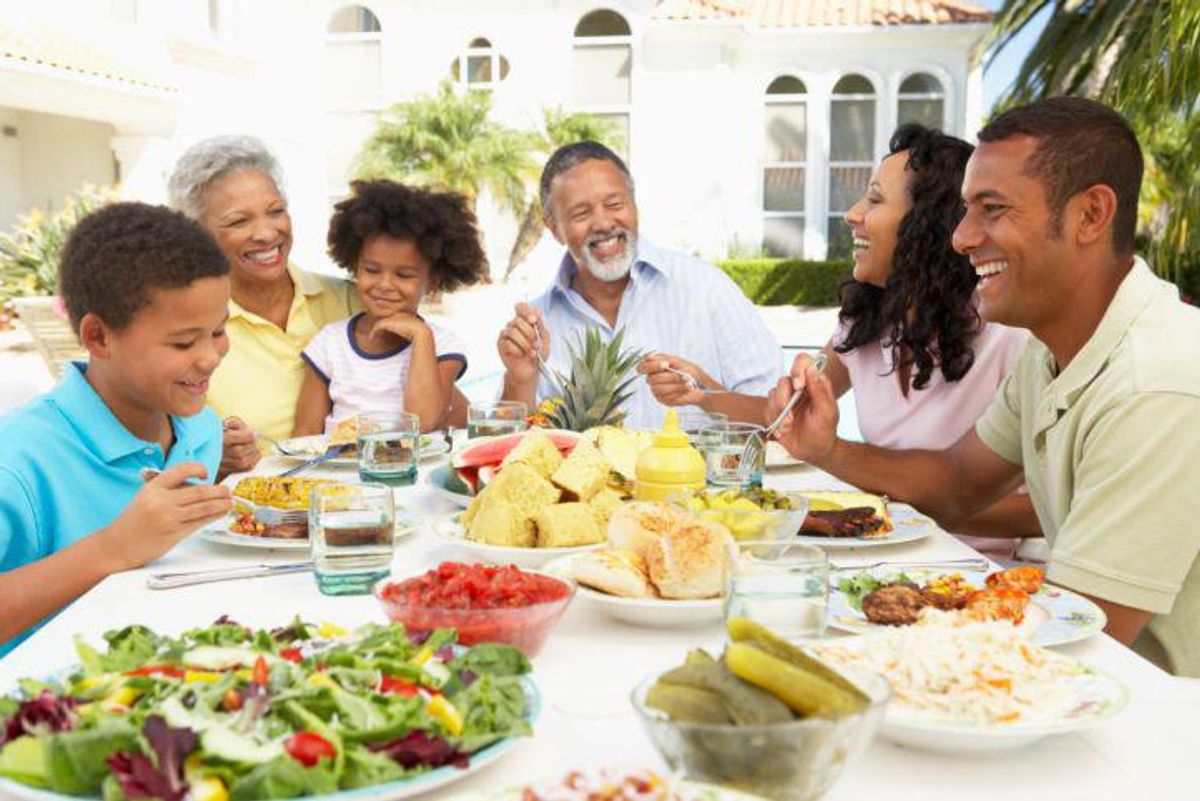Cookout season is well under way, and as the temperatures soar in some parts of the country, barbecues simultaneously become more appealing and more hazardous. Leaving meat, cheese and other dairy-based foods in the heat for too long is often a recipe for disaster.
Ever wonder how long is too long? We can help.
Bacteria multiply most rapidly at temperatures between 40 degrees and 140 degrees, and can reach dangerous levels. So, smart practices for storing and cooking your food are extremely important. The following are some easy guidelines to help you keep food fresh and safe even on the sunniest of days.
Tips for cooking meat safely
Generally, poultry poses one of the biggest risks of contamination, because it can carry salmonella bacteria. Be sure to keep this meat refrigerated until you're ready to cook it, and grill or roast until the internal temperature reaches 165 degrees Fahrenheit measured with a food thermometer.
Beef, pork and other raw meats—even hot dogs—also need to be handled with caution. If they're steaks or fillets, they should be cooked to 145 degrees, but ground meats need to be cooked a little longer, until they reach 160 degrees.
Additionally, stay mindful of cross-contamination by washing your hands and avoiding using any utensils or cutting boards that came into contact with raw meat. And don't forget to put your cooked items on a clean platter for serving rather than back on the plate that held the raw meat.
After cooking poultry and other meat, keep it at 140 degrees or warmer until served by keeping it off to the side on the grilling surface, in your oven (set at approximately 200 degrees) or a chafing dish or on a warming tray.
In hot weather (above 90 degrees), food should never sit out for more than one hour. If it's below 90 degrees, discard any food after two hours.
The scoop on side dishes
It's not uncommon for an outdoor cook to stash things like potato salad or coleslaw on the table while grilling up the main events, but the sun is likely to wreak havoc on mayonnaise-based sides. Keep these dishes (or the jar of mayo) in the fridge or in a cooler until you're ready to serve them. The same goes for cheese and lunchmeats, which are also vulnerable to the sun. These foods also need to be dumped after an hour of sitting outdoors in summer weather.
If you're storing things in a cooler, make sure the cooler stays cold. Sit it out of the sun, and use plenty of ice packs or frozen water bottles, which you can then drink, after you've removed the food. It's better to store beverages in a separate cooler so the one with the food isn't opened as frequently.
Even fruits and veggies that have been kept cold in the fridge may be carrying bacteria or tiny critters, so be sure to give your produce a good wash before serving.
Take-out food
Not in the mood to cook for your backyard friends? If bringing in takeout such as fried chicken or barbecue, eat it within two hours of purchase.

Outdoor Food Safety: Don't Let Spoiled Dishes Ruin Your Barbecue
Jul 09, 2012
Jan 28, 2025
Nutrition & Movement





